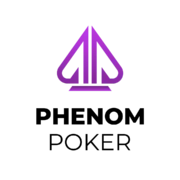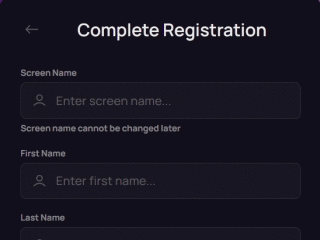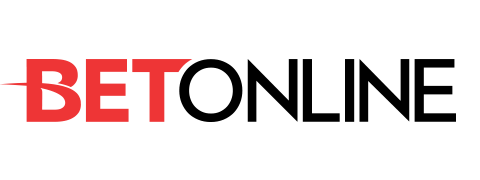Daniel Cates — What's up guys, I'm here with Espen Uhlen Jørstad, one of the best tournament players in the world, sort of my competition sometimes. He's won over $15 million live. I have that you won the main event in 2022 for $10 million. Well, that's kind of a big deal. Yeah, so there's that. He's won the tag team event also with Patrick Leonard, who's also a big deal. He's one of the best tournament players in the world and is the owner of BitB and the Triton Mystery Bounty for $640,000.
But who cares about that? Let's talk about this other stuff. Wait, you won the Main Event? What the hell?
Espen Jørstad — So funny. Before we started this recording, Jungle was like, "Wait, did you win the Main Event? I have it here that you won the Main Event...?"
— I'm not really up to date on my main event winners.
— That's completely fair. I wasn't either until I won it myself. The year that I won it, 2022, if you asked me who won it for the last 10 years, I would be very clueless. Even being part of the MTT community, I still wouldn't pay that much attention to it. Right? So no wonder that you play mostly cash and you're not super into the MTTs, so that makes a lot of sense that you wouldn't have caught it.
— You must be rolling in cash! Holy f***! The Main Event is a big deal.
— It's two years ago bro, I'm broke again! I did not—why did I not know this? I feel like I should have known this. 2023 was Weinman, 2024 was Tamayo.
— I don't know who Tamayo is, but okay.
— You didn't catch that whole controversy? There were people on the rail with laptops running sims while he was playing and all that s***.
— There was a lot of controversy around that. I did catch it; it was on one of the podcasts. What do you think of all that?
— I don't know, I don't have a super strong stance on it. I think it's f***ed up that it's possible to do it. I think there should be clear rules and they need to enforce those rules because clearly it gives a pretty big unfair advantage if someone is running sims in real-time while you're playing between hands- but still, you know, like if you run over to the rail and say like, "Okay, I have like 13 bigs, what does my range look like for the next hand?" That's a pretty big advantage you can do even sometimes.
I don't know to what extent they were doing it or what they were exactly doing, so I'm not going to comment too much on that specific incident. But I think there should be clear rules and someone to enforce those rules.
— I think we can agree on the clear rules part. I personally don't care that much other than I think it looks not fantastic for poker, which I think is a bigger deal than whether it's fair or not. In this case, it's not a huge deal just because it's so close to being fair or not and I think that.... I do want to talk about other stuff to be fair.
I had no idea when I booked you that you won the WSOP! Can you tell some stories about your experience winning—like your day breaks or any feelings of euphoria or strategies going into certain days? Preparation? Anything along those lines?
— I mean, it was a pretty rough summer to be honest. I think like I started off the summer by cashing a couple of tournaments and then went on like an 18-tournament bricking session or something like that—just bricked a bunch of tournaments. Then towards the end of the summer, I ended up winning the tag team event and going semi-deep in a couple of other tournaments before winning the Main Event. So just at the end of summer was unreal.
I would almost say that winning the tag team event like a couple of weeks or whatever before the main event was maybe more emotional because it was less overwhelming. After winning the Main Event, a lot of people commented that I didn't really seem all that happy about it or whatever. Of course, I was happy but I'm not one of those guys that's going to jump and cheer and go "Yeah! Let's go!" You know? I'm not one of those guys.
— I'd say some trolly remarks; I'd just say something funny is what I'd do for sure—just like "Oh! I knew I was going to win!" That kind of thing.
— Yeah! And also like it's a pretty draining experience right? I felt like I was able to keep my composure a lot and didn't really let the spotlight or any of the money or fame or all that stuff affect my decision-making, but after it was all said and done and I could lower my shoulders or whatever—I felt very exhausted and very drained for sure.
—I mean that would be the point to start celebrating! I wouldn't think you'd be that exhausted playing 10 hours a day! I mean you're a gamer and you play lots of Tritons and things like that—you must be used to this by now!
— Well, I wasn't playing Tritons before winning the main event. Like, before the Main Event, I'd played like one $25k or a couple of $25ks or something like that. I was playing more like mid-stakes, high-ish—not the nosebleeds.
— You only really need the sick GTO stuff if you're playing against some world crushers, I would think. Do you agree?
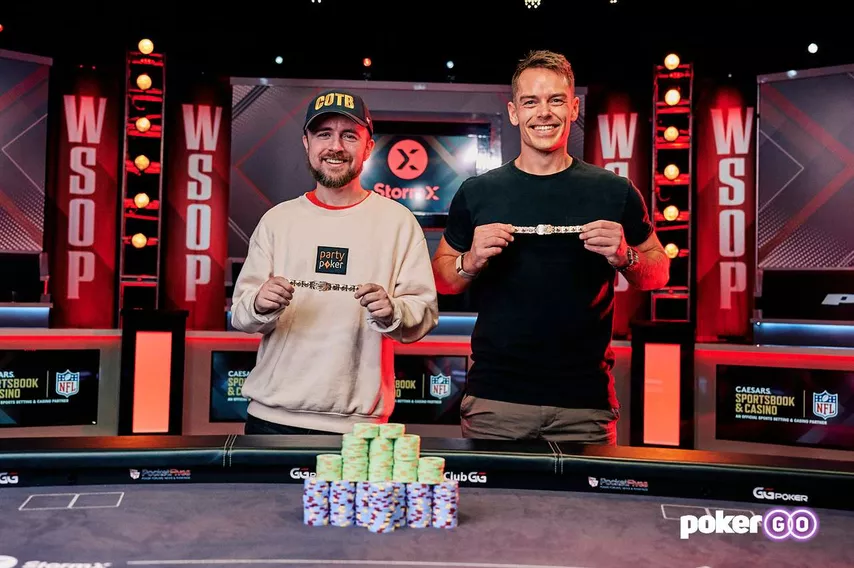
— Okay, I have a very different approach to playing Main Event-type fields compared to a Triton 100K or whatever. It's a very different approach, of course, in terms of what edges you're willing to give up and if you're taking spots or not. In a Main Event, you can skip a lot of spots because you get a lot of people gifting you stacks throughout the tournament. You meet recreational players who sometimes don't play optimal strategies, and you can take advantage of that.
— Oh, I didn't know!
— It's a good tournament; you should play it!
— I did know! And yeah, I've notoriously busted every single day—most of the time on the first day Is there anything you can tell us about the strategy for main events?
I feel like I play okay actually at it. I try not to bluff too much and—not to bluff certain people too much at least—and at least figure out who I can bluff.
— Yeah, I think that's a big part of it—paying attention and seeing what people are up to and figuring out who you can bluff or not. But I'm not really the best player to ask about this; like this was my first main event, which is kind of wild. I've been playing poker since 2004, but this was the first time I played the Main Event—in 2022—so I'm not really a main event specialist even though I won it. That's obviously due to a lot of randomness and chance.
I was close to busting on the first day as well; I had 17,000 or 18,000 after the first day. You start with 60k, so I bagged like less than a third of a starting stack after day one. Then I just spun it up on day two and maintained a big stack for the rest of the tournament basically.
— So can you tell us about any changes between this and high-stakes tournaments? Or even just—you don't even need to do that—just because the high-stakes guys have enough stuff going on. But stuff that more aspiring poker pros can get tips from?
— I've heard people have very different opinions on that as well. My approach in the main event is like: be patient, take your time, and don't get into high-volatility spots if you don't have to because—as I said—you just get gifted stacks throughout the tournament.
But then I know other people who have the approach that you should just try to build a big stack from the beginning so you can run over people because for a lot of people—the main event is like a milestone tournament. It's like they want to play it once in their life or whatever; they've been saving up or they qualified somehow—it’s a big deal! They don’t really want to call their wife and tell her after three hours: “Yeah, I busted on day one.” You know? That’s not really what people want to do. A lot of people want to survive; they want to make day two—maybe make the money! So for many players, it's a very important tournament.
So a lot of people's approach is like trying to build a big stack and then just run over un-exploitative players who are trying to survive.
— There is a lot to be said for the opportunity cost of screwing yourself over for opportunities. It’s just really hard to say what that's worth but there are clearly really plus EV opportunities in the main.
— For me, I didn't have the approach of trying to spin up a huge stack or whatever. I just played what I thought was like ICM-aware solid poker. Then I was lucky enough with two tables left—I just got in Aces versus Ace-King for a massive chip lead pot. So going into the final table, it was me and another guy who shared the chip lead.
At that final table, there were a lot of players who had big hopes of laddering—like half the table wasn't trying to win the tournament; they were trying to ladder as much as possible and pay down a mortgage or whatever. Meanwhile, I was single—no mortgage, no responsibilities in life—so I was just playing for myself. I wasn't playing for the win; I was playing ICM poker but wasn't nitting it up to make ladders. Going into the final table as chip leader allowed VPIP a lot and just redline a lot.
— That's always nice! The redline is the more fun way to win because it feels like you're winning all the time, whereas when you're hoping for ladders, you feel like you're getting screwed all the time—which might be what's happening!
— There were some sick folds. I got sent some hands from that final table afterward and was like, "Okay, what is going on here?" People were thinking all the time—yeah sure—but they were playing very tight for the most part, which is very nice when you have the chip lead.
— Well, that's convenient! There's still money in poker; that's good news at least in the Main Event. Many people will be wondering: how do you stay motivated after you win the main event?
— Good question! My motivation throughout my poker career has come from different things; it's changed a lot over my career.
I would say when I started playing poker at 16 years old, I had no real respect for money or concept—I was just playing it like a video game because I came from a video game background. I played a lot of Warcraft, DOTA, World of Warcraft, Counterstrike—these games—so I was very competitive. When I started playing poker, I was just trying to level up—basically just trying to get to the next stake and beat the next guy. I was playing a lot of heads-up cash back then; so I was kind of trying to beat the next boss—stuff like this.
I didn't really care too much about the money; it was kind of like play money in my head. Then I went to university and was in school for six years and got a job...
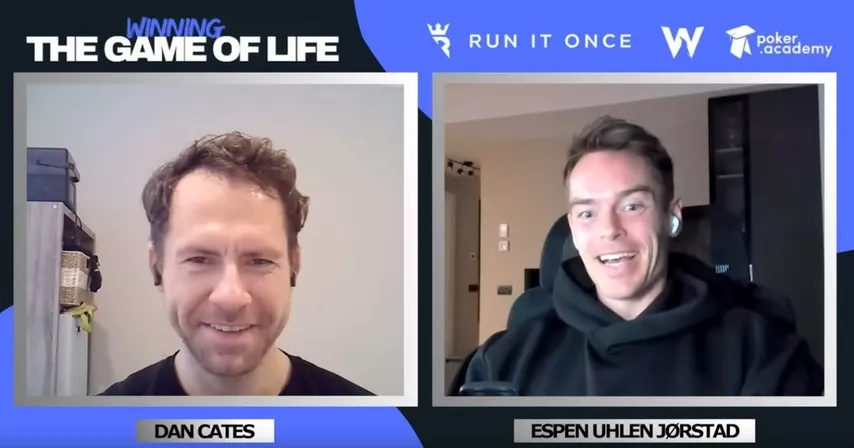
— After that, I was kind of playing poker on the side while I was doing all this to finance my lifestyle and studies and whatever. But after I finished my studies and got a job, I kind of realized that money has value—like people actually work really hard for money. Pre-Black Friday, it kind of felt like online poker was like some virtual ATM, basically, because it was so soft. You could just log on and not really have that many swings, especially if you were playing heads-up and were selective in the games you played. You just didn't have swings, right? So you could log on and take out the money that you wanted; it was ridiculous.
I think a lot of people from that era regret not playing more.
In every game or every competitive venue—the ceiling is going to get higher and higher. People are going to feel like it's tougher than it used to be and blah blah blah. Of course it is!
So when I got back into poker in 2017 or whatever, I had a new respect for money. Now I was kind of trying to realize that if I took this very seriously—grind hard and study—and treated it more like a job—which I didn't do in 2008-2009—I kind of treated it as just another fun game or whatever. But now I decided I was going to treat it like a job and be very serious about it and try to spin it up and try to retire young, secure my future.
So then I was doing that for a few years—grinding and building it up. I had my goals and ambitions and then I won the Main Event. Now of course that changes everything again because those financial ambitions are not there anymore. I wasn't ready; I didn't feel like I was ready to go on a beach in Thailand and just live out my days there. You know? I kind of felt like I still had stuff to do in poker; I still had stuff to prove or whatever—like the inner ego or whatever.
So I decided I was going to have to find new motivation to keep competing in poker. That was going to be basically to prove that I'm not a one-hit wonder by competing in Tritons and high rollers and WSOP and whatever else it is. You know? It's very silly how these insecurities drive our motivation! But yeah, I decided that was going to be my next step.
Honestly, over the last six months or whatever, I've been struggling with this because I was unsure if this ego-driven success-seeking is really healthy.
— You're really deep on this! Um, I've thought about this too, I mean, I would ask simply: what is healthy? That would be my next question but that's a tough question to answer in a way.
— Can I ask what your perspective is on this? Because you've been in poker now for f***ing forever and you've been at high stakes forever. For sure money was a big motivation for you at some point; I don't know if it still is or if you've changed or if that just became like... how has your journey been on this?
— At some point, I asked that question: what the heck is this good stuff? Because it kind of gets to this point when you're thinking about earning more points—you can say earning more money—because going deep and thinking about things a bit more wasn't that clear.
I think that the ego is very supportive. It's hard to do what you're truly wanting to do without having your ego involved in some kind of way—even though it's not perfectly efficient if you really think about it.
But it does kind of push you using real-world and tangible benefits towards things that will motivate you as a whole—through pain, insecurity, dreams—things like that nature.
— I also want to mention a couple possibilities that may be interesting for the audience.
You said you were "a fat slob" at some point (this is in quotes) and that you were able to turn your life around; that's actually quite an accomplishment. I think there probably is a population in poker that can resonate with that—or resonate with wanting to change that about themselves. Also, you joined the army at 18; that's an interesting story too! I'm pretty surprised by that especially considering you were kind of doing the opposite of joining the army—which is playing online poker.
— I had no place in the army at all! I was the opposite of what you would think of as a soldier. I had like no discipline at that point; I was over 100 kilos and had zero grams of muscle on my body—literally like zero grams of muscle! I've never been in a gym! I spent most days just in front of my computer playing World of Warcraft or poker, and like—I was in very bad shape.
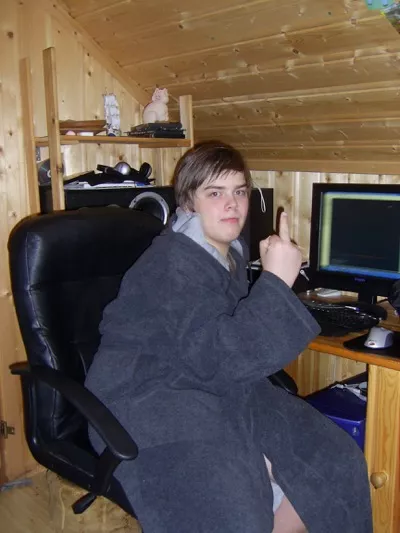
Socially, I was very awkward; I was a very different person back then. When I meet people now, they have a hard time believing it's me if I show them pictures or videos because I was such a different person. The year in the army itself helped a lot because I learned a lot about discipline and was forced to grow up very fast. You know? Going from being a very immature lazy guy to basically having to wake up at 5:00 AM every morning to do push-ups and whatever other nonsense they had us do.
After the Army, I lost like 18 kilos; I gained some strength and lost a lot of fat. When I got out of the army, I tried to keep the gym routine going but was also partying a lot and not eating too healthily. So I gained a decent amount of weight again after the Army—maybe like five or ten kilos back—but at least now I was strong and fat—not just fat as before!
— Perfect!
— Debatably, yeah—I was in better shape but still not in good shape, I would say. It's been like a continuous journey with periods where I'm very strict. I get into really good shape, and then periods where I let it slide a little again. I go on vacation and eat lots of nice restaurant food and whatever. At this point, I'm kind of okay with it.
— I thought you told me that you never eat junk food! You seem like you're in good shape! I feel like there's something in between where we went from strong and fat to just strong and in shape—I feel like there's a missing piece here!
— Not really a missing piece; it has just been a continuous grind, basically. I think I got in the best shape of my life during COVID because I decided, okay, this is a great opportunity to get in the best shape of my life and become the best poker player that I can be. So during COVID, I had very long periods where I didn't touch alcohol or sweets—just working out like 12 times per week and being very on point with everything.
— No wonder! The mystery is solved!
— I want to ask also about not getting the money from the Main Event for six months. That's pretty strange. Can you tell us about all that?
— I got it all in the end, yeah, but the IRS was refusing to accept my UK proof of residency. I didn't have the proper certificate of residency; I just had other things. I had a document from the government saying that Espen lives in London and he's here, but it wasn't the official certificate of residency. I don't remember what they called it—but the IRS wouldn't accept it. It took a long time.
So I could have taken out the money on day one after winning it, but I would have had a 30% withholding tax, right? And reclaiming that could take a long time, they told me. So I decided I would rather wait and try to figure it out.
— Yeah, that's kind of salty; I would try to fight for that $3 million also.
— Yeah, I mean, I just waited, but of course in a time where interest rates are decently high, that's quite a bit of money, right? Like $10 million at 4% interest for half a year is about $200k. So it does matter in the end—having the money locked up just sitting there. But of course it worked out in the end.
— Glad it worked out! It'd be pretty bad if WSOP screwed you over.
So you said that the tag team bracelet was more enjoyable—why is that? Especially since it's like a $1,500 bracelet, isn't it?
— No, not more stressful—more enjoyable in the moment! I said that because I was more able to feel the moment—like winning it with a close friend and that whole thing. It was a very cool moment while winning the Main Event was a bit maybe overwhelming. It was like maybe more a sense of relief because, you know, for me it was more about not messing up. It was more like a professional pride kind of thing; I didn't want to punt or do anything stupid or play bad poker on the biggest final table of the year. You know?
It was more like a professional pride thing. I think I felt more relief in the sense that I think I played the best I could at least. So yeah, it was more that! But yeah, the tag team was cool—a very cool event! Of course it's a $1,500 buy-in—no, it was less; it was $500 per person. It was $1K in total! I think we won a total of $150k—so $75k each or something like that. So of course the money was not—it was okay; it's still a lot of money—but it wasn't anything life-changing like the Main Event, of course.
— Yeah, I would have thought it wasn't worth that much! Personally, I thought this was an interesting format for games and the whole idea of there being teams for poker could change things a little bit—make things more interesting! But it seems like it hasn't gotten that much reception.
Do you think it's a good idea to add more team events?
— I'm not sure. I think like for—it seems like a lot of the people that play that event enjoy it a lot; people think it's a lot of fun! Especially if you do it the way that me and Patrick did it—we played basically half the event each of us—you know? We swapped in and out and played it as a tag team event. A lot of people that play a tournament—they play with their dad or their girlfriend or whatever—and like the girlfriend plays one orbit and then you come and take over for the rest of the tournament basically.
Just like... yeah! Then it doesn't have the same team feeling probably—maybe, right? But uh, the way we did it, I think was very fun! Like I had a lot of fun during that tournament swapping in and out and discussing hands.
— I'd like to see it be experimented with more—and some other sorts of things being experimented with more! Um... it's a cool format! I think it'd be nice to talk with some of the tournament organizers about having more formats in different kinds of games because that would drive more action anyway and create more edges!
We think there's quite some edge in this too! What are your thoughts on the edge of the tag team bracelet?
— I mean very big! I don't know how to estimate it in terms of ROI but very very big! It becomes kind of turbo at some stages towards the end, I guess so—the edge will decrease towards the end—but in terms of softness of the field, it's unbelievable! It must be one of the softer tournaments during WSOP because of this factor—that you have people playing with their friend from high school or their dad or their mom or girlfriend or boyfriend or whatever!
I don't know why they didn't make the Triton Events bit like this—the Triton invitationals!
— Let's wrap things up, but we can mention your poker vlog also. Do you like content creation, by the way?
— In periods, yeah. The vlogs that I made—I haven't made a vlog since the Bahamas last year, I think, or January or something like that. So I haven't been vlogging; I've just been very active on Instagram and that's kind of it. But I also haven't been sponsored for the last year by a poker company, so I haven't had the same incentive.
I was always thinking that if I'm going to be doing vlogging, I want to be doing it for some purpose—not just because it's time-consuming. Man, it's time-consuming; it costs quite a bit of money!
I don't know—content creation is kind of fun, but it's also more work than what people realize, I think.
— Yeah, it definitely is!
— I'm a bit torn about it.
— It's hard to make money from it, but you gain influence and people know who you are and stuff.
We'll give a shout-out to GTO Wizard for their great product! It's very usable for a lot of my seminars and learning and looking up spots—very practical and fast—and one of the most powerful assets for learning poker!
Any last words, Espen?
— No. I'm going to go back to creating my GTO Wizard videos and getting ready for Triton Monte Carlo. Am I going to see you there, by the way! What are you up to these days? Are you coming?
— I'm going on the path of the Buddha, which I believe to be more important than going to Monaco! That should be interesting! Speaking of which, I'm deciding to get my s*** together.
— Where is this?
— In India! It's going to be in India—in the literal path of the Buddha! I'm actually going to the physical sites—including the Bodhi tree.
— To do what?
— I'm not sure! But they're educating me on a variety of teachings and kind of bringing me into that sect of spirituality.
But that sect of spirituality is the pathway of truth. That specific philosophy appealed to me because it's basically the most objective version of looking at reality. It even disassociates good and bad; it doesn't really define either of them. I would say that those things—good is an inevitable result over time. Things become better and better or they have to basically—I believe it suggests that—but it doesn't really define things in those terms.
It's one of the sects of Hindu philosophy, I guess you could say. One thing that people don't know is that a lot of Hindu philosophy is essentially anthropomorphizing—at least I think that's the word—so that it's a lot more salient; it has more story to it to make people more interested. But this philosophy takes a lot of that away and just gets to the pure basics.
Okay, does that make any sense to you?
— I mean, I'm looking forward to hearing about it once you've done it!

— Apparently... well we'll see what happens! What really sold me on it because they made it very close to my birthday, so I'm like okay—might as well go!
— Okay then, very cool!
——Yeah, all right—no Monaco for me! I'm choosing the opposite: I'm choosing spiritual wealth over objective wealth and forget Monaco! I don't like Monaco very much.
— Maybe I'll get there in a few years.
— Yeah, it's possible! You might be like: "Oh, what's this spiritual wealth stuff?"
— Yeah—satisfy the ego first and then shatter it later and go back to the roots—it sounds pretty good!
— Going to the roots of the Bodhi tree—that's my thing as well—hopefully soon!















